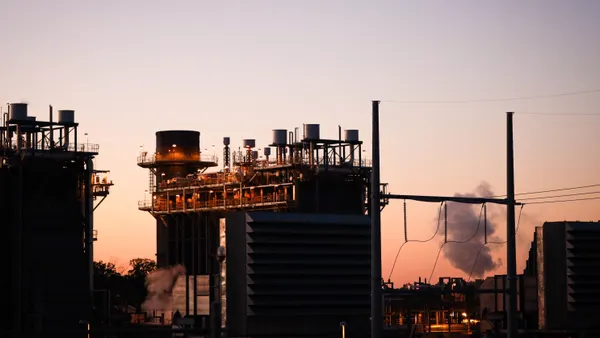Dive Brief:
- An analysis by regional transmission operator PJM Interconnection shows individual states can reduce the cost of complying with the proposed EPA Clean Power Plan by almost 30% through the plan’s regional collaboration option.
- Analysis of 15 scenarios concluded total compliance costs through collaboration among PJM states would be an estimated $35 billion in 2020 whereas a state-by-state approach would cost close to $45 billion, RTO Insider reports. Most scenarios estimated carbon prices at $5 per ton to $10 per ton in 2020 and $20 per ton to $30 per ton in 2029.
- In a scenario based on existing resources and planned resources with significant development commitments, a state-by-state approach would produce a 2020 carbon price of $11 per ton while a regional approach would produce a 2020 price of $2 per ton. In a natural gas-intensive scenario, prices were $40 per ton in 2020 and almost $60 per ton by 2029.
Dive Insight:
The EPA’s Clean Power Plan is broadly targeted to cut U.S. greenhouse gas emissions 30% by 2030 but leaves it up to individual states to choose how to reach their individual target.
The plan offers states the options of cutting emissions with cleaner coal plants, more natural gas, more renewables and nuclear, or more demand efficiencies. It also offers states the option of acting individually or in collaboration. Even so, many utilities and fossil-fuel heavy industries have spoken out against the plan, saying it is too costly and could hurt electric reliability.
The PJM analyses estimated CO2 emissions prices based on the price difference between high-emissions resources and low-emissions resources needed by PJM to maintain competitive electricity prices and reach the emissions reduction targets, according to RTO Insider.
In a regional approach, shared resources would create one carbon price for PJM generation. Acting alone, coal-intensive states like Indiana and West Virginia could have over a $14 per ton price while neighbors like Maryland and Virginia might have a price as low as $5 per ton.
Researchers estimate that the Clean Power Plan could prevent more than 3500 premature deaths and thousands of hospitalizations each year.














